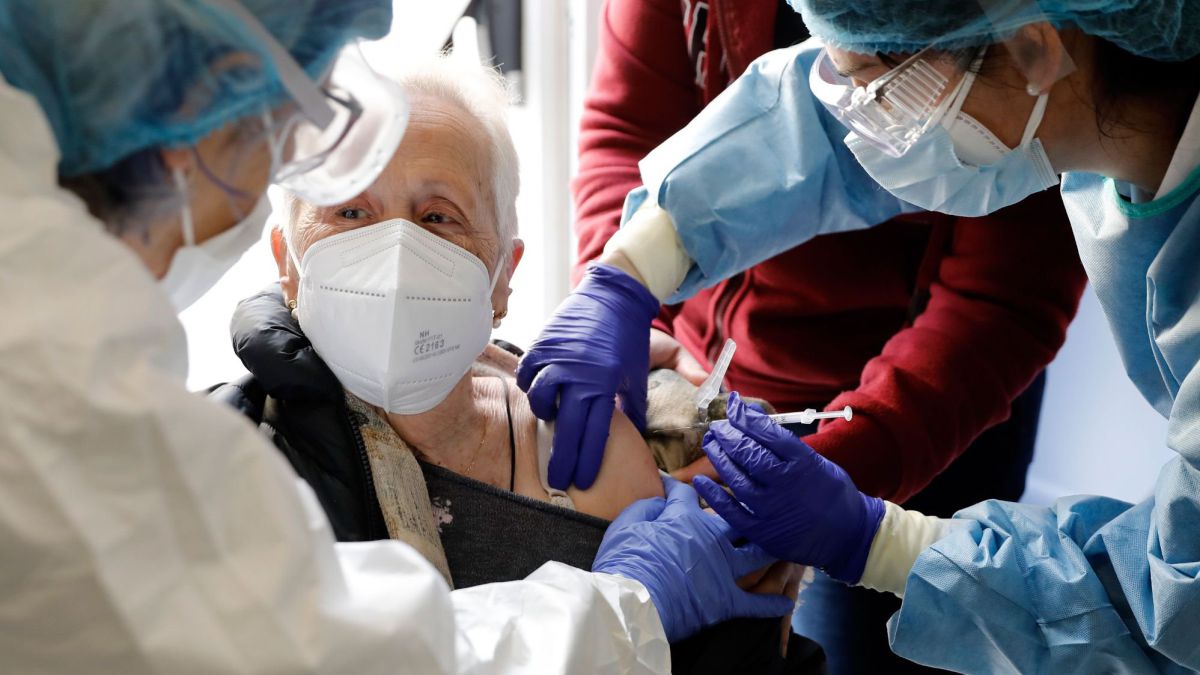Vaccination in Spain advances with the passing of days. 2,782,751 doses of the coronavirus vaccines have already been administered and 1,144,556 people have completed their immunization after being inoculated with the two doses of the drug. Most of them claim to have suffered some side effect, although these are not different from those referred to in the manufacturers’ technical data sheet.
Symptoms after the administration of a vaccine are usually also common in other drugs intended to prevent other diseases. These annoyances, in the case of coronavirus vaccines, have generally lasted for less than two days and have not been particularly serious.
Main effects in each vaccine
Pfizer/BioNTech
According to data from the Ministry of Health, they have been inoculated 2,615,838 doses of the Pfizer/BioNTech vaccine. In addition, 1,129,821 people have completed the vaccination schedule with this drug.
The Spanish Medicines Agency has collected that the main side effects present in people who have received the vaccine are tiredness, chills, fever and headache, joint or muscle pain, as well as pain and swelling in the area of the puncture.
Moderna
120,042 people have received any dose of this vaccine, while there are already 14,735 complete immunizations with the drug from the North American company.
The main side effects do not differ greatly from those of the Pfizer vaccine, although some would have to be added such as nausea, vomiting, or swelling in the armpit. In addition, some muscle and joint stiffness may also occur.
AstraZeneca/Oxford
Due to the subsequent approval of its emergency use by the European Medicines Agency, the AstraZeneca/Oxford vaccine is the least administered to date. 46,871 doses of the drug have been inoculated and, at the moment, no immunization with it has been completed.
The effects reported after this vaccine are practically the same as those of Moderna, in contrast to the fact that no vomiting or muscle or joint stiffness has been detected. In addition, the injection site presents, according to those affected, a sensitivity higher than usual. and annoying itching or bruising could result from the puncture.
However, according to the French newspaper The Telegram, some hospitals in the cities of Brest and Morlaix have postponed the administration of this vaccine in their professionals due to the high number of casualties produced the day after its inoculation. It is estimated that between 20% and 25% of workers they have had to take a day off from work due to “headaches and high fevers.”
More effects in the second dose
Social networks are being the communication channel to warn the general population of the effects presented by vaccines. There, Most of those vaccinated have indicated that the second dose has caused them more discomfort than the first, as confirmed by the vice president of the Spanish Association of Vaccination, Fernando Moraga-Llop.
It’s over, vaccinated with the 2nd dose covid19 Pfizer, it’s time to wait for the side effects today … I’m telling you 😉 pic.twitter.com/rhCaocZHkb
– 𝑴𝒊𝒈𝒖𝒆𝒍 𝑨𝒔𝒖́𝒏𝒔𝒐𝒍𝒐 (@MiguelAsunsolo) February 11, 2021
Sonia, a nurse in La Nava de Ricomalillo (Toledo), has recognized that the first dose of the Pfizer/BioNTech vaccine caused little discomfort. However, the second “did cause pain in the deltoid area. and I woke up several times at night because my muscles ached, but it was a matter of two days,” she explained.
Other health workers are heading along the same lines. “I had a lot of fever and muscle pain after the second dose. I couldn’t get out of bed ” Maria has admitted, adding that she improved the day after the vaccine.
Young people and women, the most affected
Moraga-Llop has stressed that none of the symptoms reported after the administration of the vaccine is of any concern, “since they are those that the manufacturers had already reported.”
This trend has been confirmed by the Ministry of Health and the Spanish Agency for Medicines and Health Products in the ‘Second Pharmacovigilance Report on COVID-19 Vaccines’, where it is estimated at 1,555 reports of adverse reactions.
The profile of those affected seems quite clear, since 82% of the reported side effects have occurred in women and 85% in people between 18 and 64 years of age. Furthermore, according to the scientist, “The effects occur more in people who have already passed the disease”, so there could be news in immunization of these people, such as giving them only one dose or postponing the inoculation of the second.

